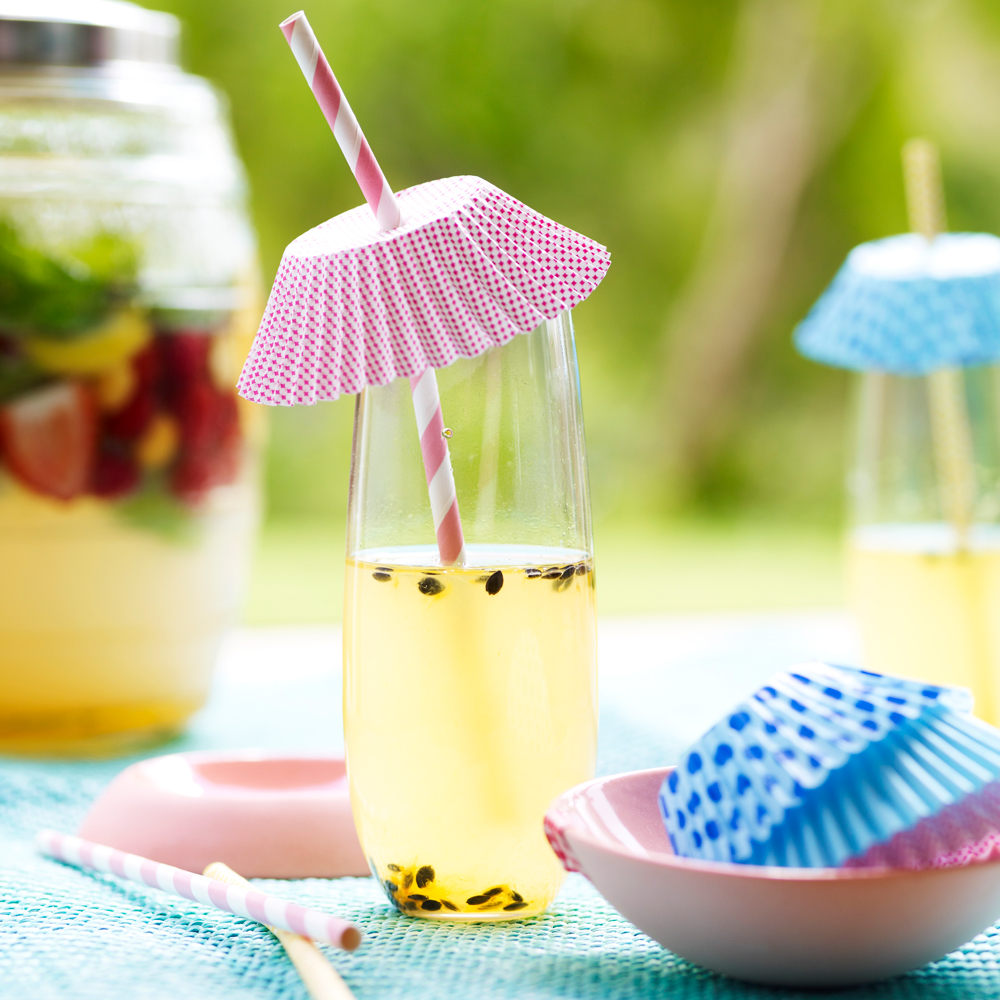
Now that summer has arrived, we can finally enjoy alfresco dining in the garden. But we aren't the only ones making the most of the warmer weather – and knowing how to get rid of wasps safely will make your time spent in the garden a lot more pleasant.
Wasps can gatecrash your outdoor plans and put a damper on your fresh garden ideas, but it's important to try and deter them before you resort to swatting. They are helpful pollinators, after all.
Luckily, there are lots of ways you can get rid of wasps safely and enjoy outdoor living in peace.
How to get rid of wasps

Spending time in the garden shouldn't be stressful, but wasps can have us all in a fluster during the summer months.
That's why we've asked the experts for their top tips on how to get rid of wasps safely, from homemade spray recipes to simple reminders of what to watch out for.
What you'll need
Hide your food from wasps with this classy food cover, which makes a great decoration, too.
A few drops of this peppermint essential oil will help keep wasps at bay while you enjoy your food.
Small tealights go a long way when they're citronella. Pop them around your dining area to guard the space.
1. Hide their food source
'If you remove the things that attract wasps to your property, they will be less likely to stick around,' advises Edris Latifi, pest expert at Eco Care. 'This includes getting rid of standing water, overly sweet-smelling flowers, and ensuring your bins are completely shut off and regularly emptied fully.'
If you're eating outside, try to keep sweet drinks, jams and cakes covered to avoid tempting their sweet tooth. Similarly, keep foods covered if they're placed near a window indoors. Otherwise, you might be greeted by an unwelcome visitor!
Wasps aren't the only ones who are attracted to sweet things – the last thing you'll want is to be researching how to get rid of ants this summer!

2. Get rid of wasp hangouts
You should also be mindful of standing water in your garden, according to Edris. 'Wasps require water to build their nests, so if you have a birdbath or outdoor pet water bowls in your garden, this can be an issue to keep an eye on.
'A nest can contain a thousand wasps, so preventing them from being able to settle is key to a wasp-free garden.'
Regularly rinsing and monitoring your bird bath can reduce the risk of wasps setting up camp in your garden.
3. Make a homemade spray
Another popular method of getting rid of wasps safely is making a homemade spray.
'Simply mix equal parts vinegar and water in a spray bottle and spray it around the areas where you've seen wasps,' says Edris.
Though easy and quick, this idea can achieve immediate results.
4. Grow strong scented plants
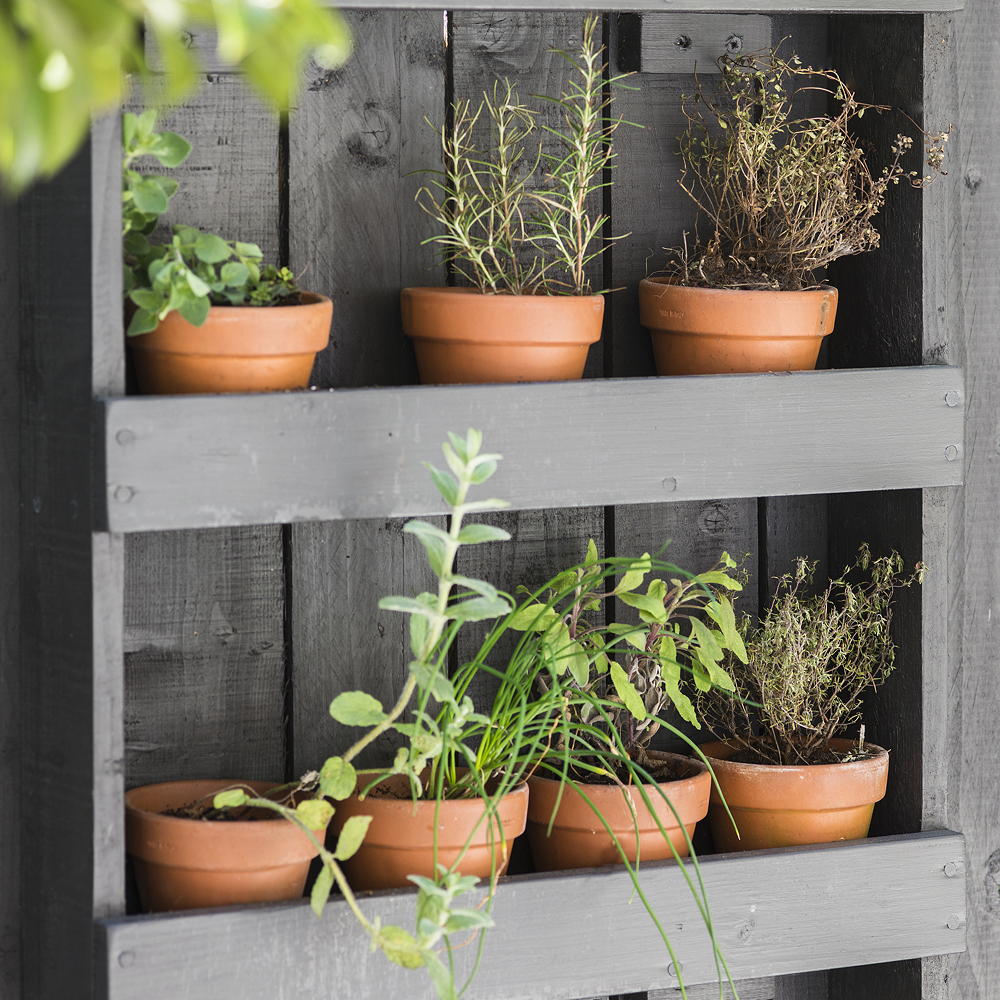
'Smells that can be used to discourage wasps from certain areas include tomato stems, fresh mint, ground coffee and cloves,' says Catherine Alyons, buying director at Garden Buildings Direct.
A border filled with fresh mint will help prevent wasps from venturing into your garden. Alternatively, fill a window box with mint not only will the sweet smell waft into your home on a summers day, but it'll be sure to keep the wasps at bay.
There are countless other plants you can keep in your garden to help keep wasps at bay.
'Without wanting to harm the wasps, I would recommend planting peppermint, spearmint, basil, eucalyptus, cloves, geranium, thyme, citronella, bay leaves and lemongrass to keep them out of the garden,' says Mark Douglas, Cuprinol Garden Shades’ resident beekeeper.
5. Scatter peppermint oil
According to a study in the Journal of Pest Management Science in 2013, peppermint oil which you can pick up at Amazon, is almost guaranteed to keep wasps away. Add a few drops of oil to tissues or cotton wool balls and place them around the garden in spaces between the decking, porch roofs, sheds and any other gaps where wasps can congregate.
You can use the same trick in your home if you keep catching them flitting around your kitchen.
6. Burn citronella candles
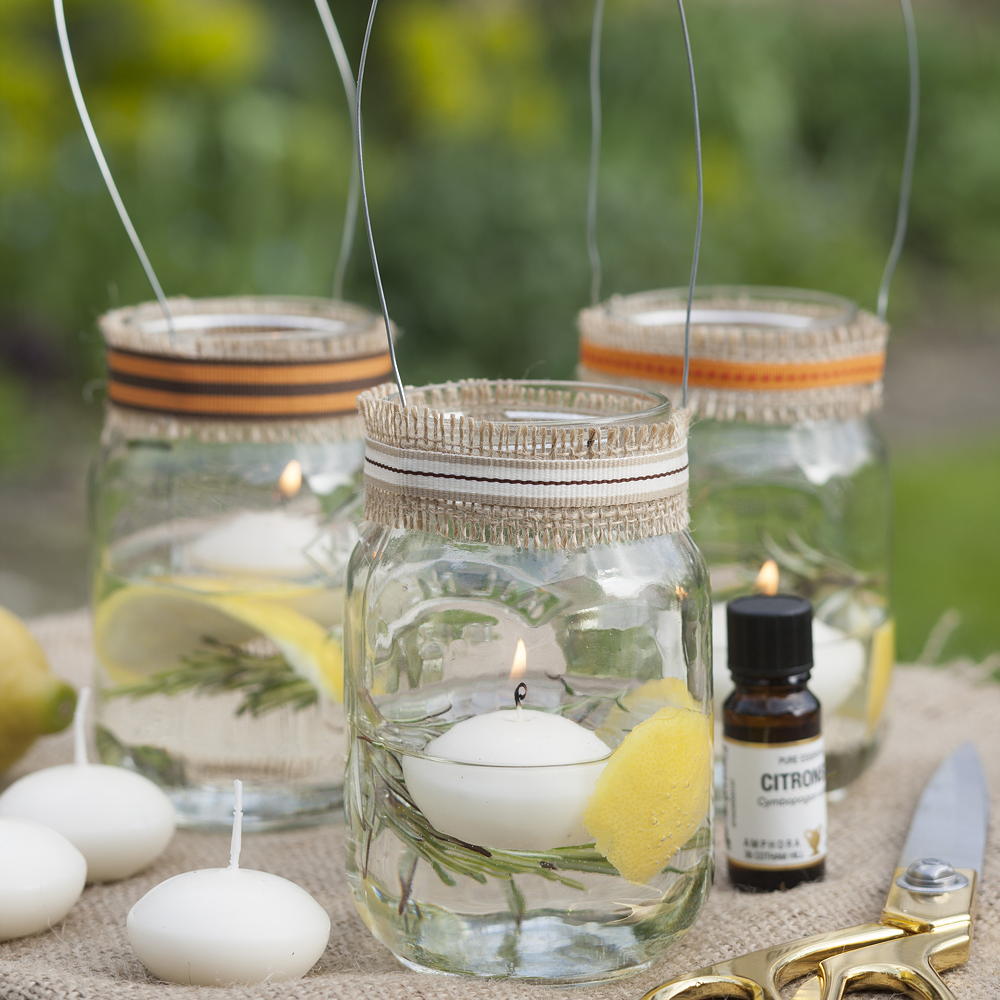
This is a great tip for keeping not just wasps but all other insects away while you have a relaxing meal outside. You can find citronella candles in most supermarkets and hardware stores.
They often already come in pretty containers, but you can also buy them as tea lights from Amazon and use your own candle holders. If you find the scent is a little too strong to have on the table, why not try popping some of the tea lights in small terracotta plant pots around the dining area, just remember to blow them out before you go inside.
7. Avoid leaving the outside lights on
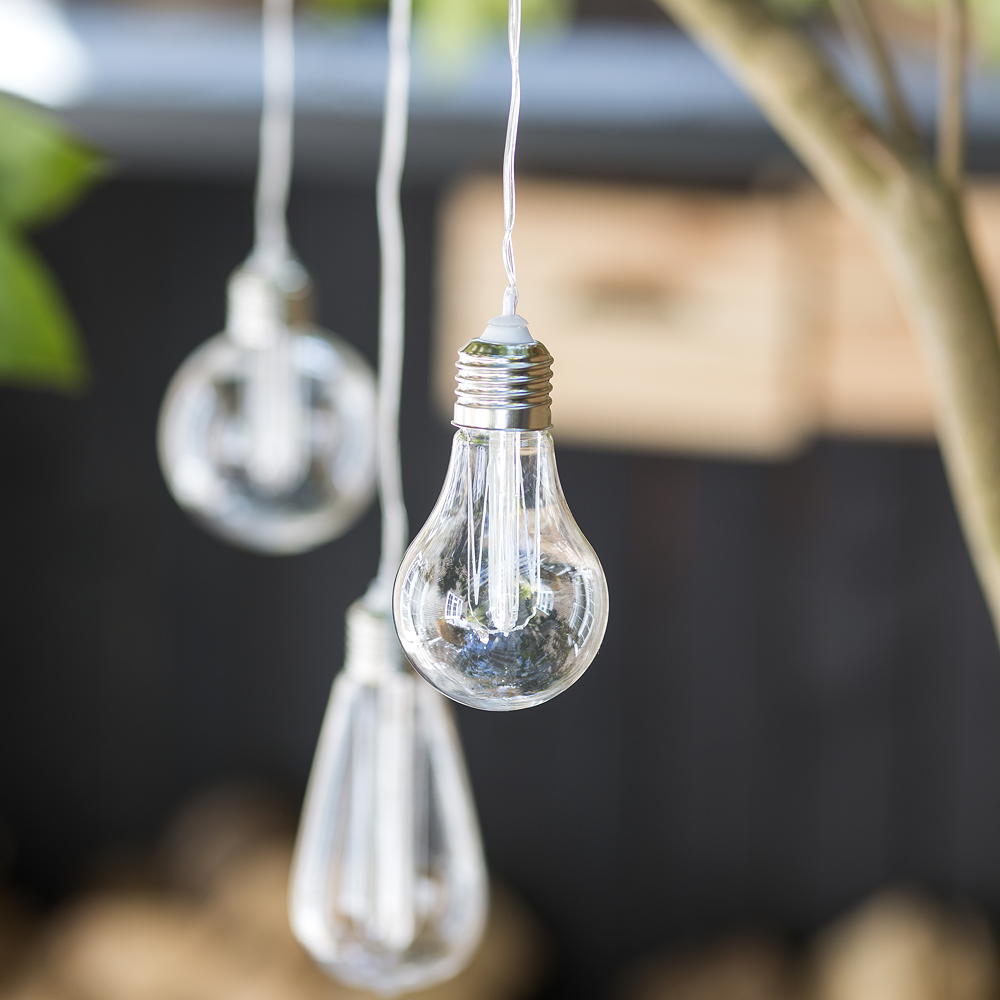
Try not to leave your outside lights on any longer than necessary. Lights will attract all kinds of insects, including wasps.
'A motion sense lighting or a more ambient solar powered light may work best,' suggest Outdoor Living Experts at CGC Interiors Outdoor Lighting.
'LED bulbs produce less heat than incandescent bulbs which will be less attractive to wasps and hornets.'
You might even decide to try the tinted "yellow" outdoor lightbulbs (which you can pick up at B&Q) CGC Interiors Outdoor Lighting suggests. 'These are designed to repel flying insects because the colour of the bulb makes it hard for them to see.'
While we believe killing wasps should be a last resort, if you have tried everything but still seem to be ducking from them every few minutes, you might have a nest, and it might be time to take more drastic action...
8. Place sugar and water traps
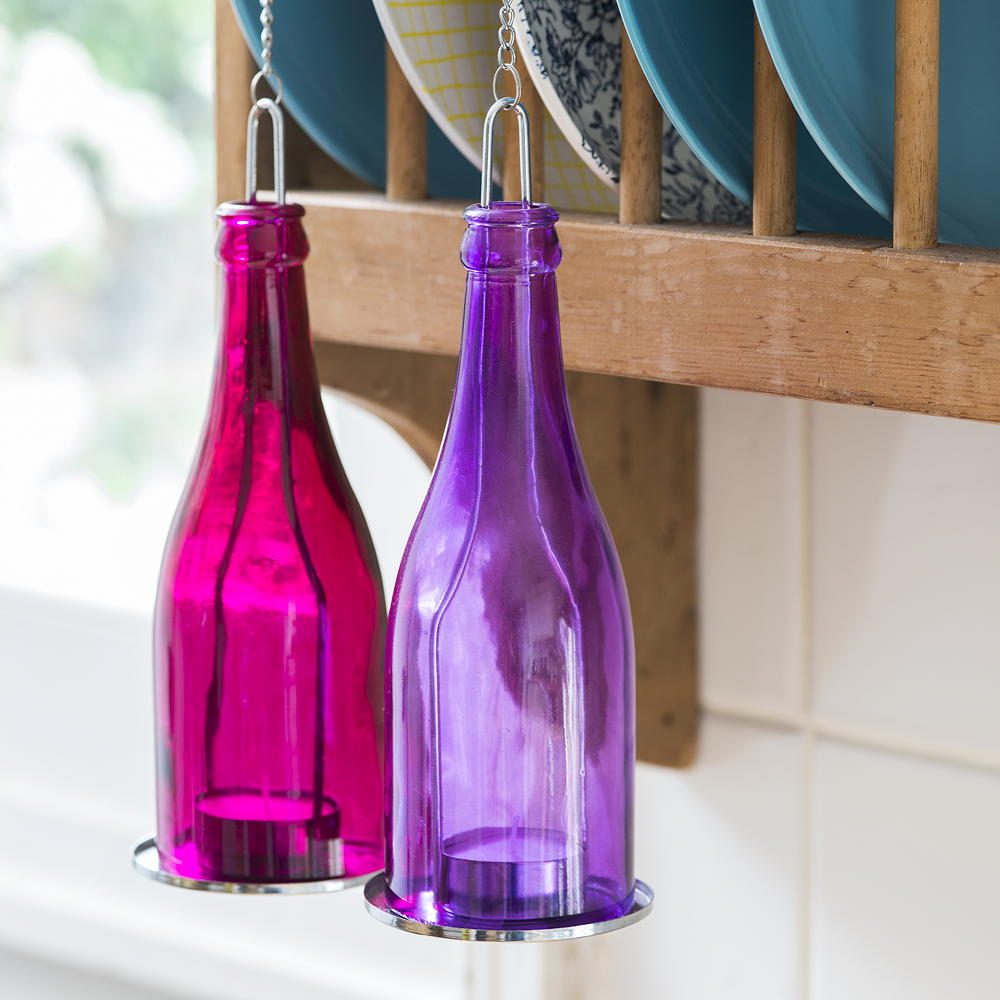
Place either a solution of sugar and water inside an open bottle. The sticky mixture will attract the wasp, who will crawl inside and likely become trapped and die. You can buy a variety of wasps traps that perform this function with more easily removable tops so you could release the wasp after it becomes trapped if you wish.
But please remember that the wasp will not be in the best mood if you choose to do this, so please be extremely careful and avoid if you have an allergy to wasp stings.
9. Call in the professionals
If you do have an active nest in your garden in a hard-to-reach place call, in a professional to remove it. Dealing with a nest yourself can cause all sorts of dangers. If you attempt to destroy or dislodge the nest yourself, the wasps might swarm to defend their home.
Smoking wasps out is another tip that's often handed out as a way to get rid of them, but we'd advise leaving this to professionals as the fires can easily get out of control.
FAQs
Why do wasps hate vinegar?
'Wasps are reliant on their smell to locate food, new nest locations and communicate,' explains Edris from Eco Care. 'Wasps hate vinegar due to the strong acidity, and the overwhelming strength of odour. The use of vinegar in the garden masks more pleasant smells, discouraging them from staying.
'The acidity of the vinegar can also be mistaken for insect poisons or harmful materials.'
What do wasps hate the most?
As well as vinegar and various herbs, wasps are repelled by one food waste product in particular.
'The really interesting one is coffee,' reveals Mark Douglas from Cuprinol. 'It's a natural fertiliser that deters slugs and wasps without using chemicals. It's also the the most prevalent food waste substance in the western world, and can be repurposed to make chemical-free bio fertiliser.'
'Wasps are also repelled by cinnamon, coffee grounds and sliced cucumber.'
So, ditch the fly swatter and hopefully, with these tips, you'll be able to enjoy plenty of alfresco dining in the garden this summer.







